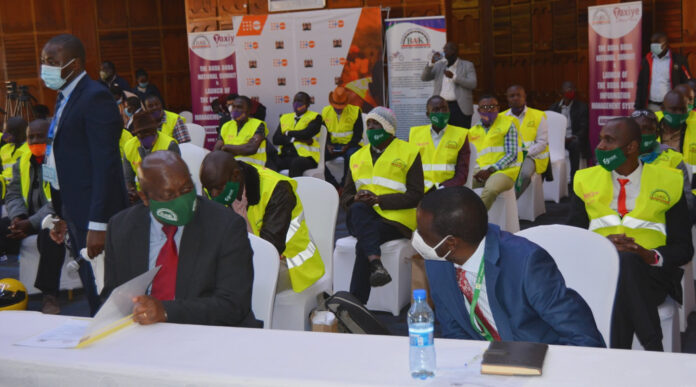After years of chaos and lawlessness, the Kenyan government is finally addressing the boda boda crisis that has been plaguing the country’s roads. The new set of rules, developed after public outcry and violent incidents, is meant to bring order to the motorcycle transport sector.
The rules were formulated after a meeting between senior police officials and the National Boda Boda Association leadership. The meeting was led by Regional Police Commander George Seda when public frustration with boda boda misconduct had reached a boiling point.
The New Boda Boda Rules
Under the new rules, all boda boda riders will be required to wear county-specific uniforms with unique identification numbers. Each sub-county will have its own color scheme for these uniforms so that authorities can identify riders and deter criminal activity.
In addition to the uniform requirements, riders will also need to meet the following conditions:
- Minimum Age: Riders must be at least 18 years old.
- Valid Driving Licenses: All riders must have a valid driving license.
- Certificates of Good Conduct: Riders must have a certificate showing they have no criminal record.
- Two Helmets: Each rider will be required to carry two helmets—one for themselves and one for a passenger.
All riders will also need to register with local authorities and join SACCOs (Savings and Credit Cooperative Organizations) and stage chamas (financial groups). These groups are meant to instill discipline, offer support and provide a structure for riders to grow legitimate businesses.
Boda Boda-Related Crime
These rules come after a spate of boda boda related crime including the murder of city lawyer Kyalo Mbobu on September 9. Mbobu was shot by assailants on a motorcycle along Magadi Road. Boda bodas are being used as getaway vehicles by criminals and it’s harder to trace them compared to cars.
In response to the rising crime, Murang’a Senator Joe Nyutu has called for the introduction of larger, more visible front number plates on motorcycles. The idea is to make it easier for cameras and witnesses to identify motorcycles involved in crime especially when they speed away from the scene.“We need to think more seriously about motorcycles. Once a crime is committed we should be able to trace the motorcycle within two to three days,” Nyutu said in an interview on Citizen TV.
Lawless Conduct at Accident Scenes
Besides the crime wave, there has been growing concern about violent behavior by boda boda riders at accident scenes. Cases have been reported where vehicles were stoned or torched after accidents especially in areas like Juja and Luanda. In some cases pedestrians have also been victimized by angry groups of riders taking the law into their hands.
Commander Seda has said no more. He has said that law enforcement is the responsibility of police and other authorized agencies and that those who break the law will face personal consequences. No more group punishment.
Kevin Mbadi, chairman of Boda Boda Safety Association of Kenya, agrees, saying local boda boda leaders will be cracked down on if vehicles are torched in their areas without the perpetrators being identified.
To support riders who find themselves in trouble for legitimate reasons, Mbadi’s association has partnered with lawyers to offer free legal services for road cases.
Financial Support and Business Growth for Riders
While the rules are about control and accountability, they also acknowledge the challenges many boda boda operators face to make an honest living. By requiring riders to join SACCOs and chamas, the government is trying to create financial stability and opportunities for riders to build a legitimate business.
The new registration system will prevent criminals from using stolen or unregistered motorcycles. It will also give legitimate riders credibility, access to services and a more organized and professional sector.
The Future of Boda Boda Regulation
Success of these new rules will depend on enforcement. Previous attempts to regulate boda boda have failed because while rules were set, they were not implemented.
But with consequences clear and both police and boda boda associations on the same page, the chances of change are higher. The real test will be in the next few months when these rules are rolled out on the ground.

